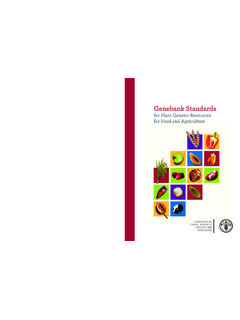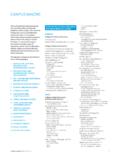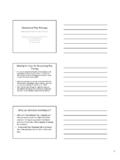Transcription of Modern and Traditional Business Management: An …
1 1 Modern and Traditional Business management : An Overview of Two Ideal Types of management , their Differences and Influences on Performance. Master of Business Administration management Studies Strategy and Organization 22 July 2010 Author: Viola Elise van Alphen 1584529 Supervisor: Paul Vlaar 2 management summary management literature exhibits trends over time, and a shift seems to occur from attention for Traditional towards more Modern management approaches. This thesis explores the main differences between both management approaches, and it assesses how each of them relates to the other and to organizational performance. A literature review and an causal research using a questionnaire with 101 respondents with a broad variety in gender, sectors of industry, job-level, et cetera, has been performed in Dutch trains in April 2010.
2 Results indicate that differences between Traditional and Modern management approaches pertain to at least seven dimensions: (1) management Perspective; (2) Performance Horizon; (3) Rewards and Sanctions; (4) Coordination and Control; (5) Attention Sphere; (6) Managerial Qualities; and (7) View on Core Resources. The empirical study suggests that the Modern management approach not so much substitutes but complements the more Traditional approach. It comprises an addition to Traditional management , with internal motivation and intrinsic rewards have a strong, positive effect on performance, and short term focus exhibiting a negative effect on performance. These findings contribute to the current discussion on the significance of Traditional and more Modern management approaches.
3 More specifically, it addresses questions such as: what position do Modern management approaches assume relative to more Traditional approaches? Do they constitute substitutes or complements? Are they just a temporary trend in Western societies? These are important questions for all organizations having an influence on their survival. The results of this study partly address my own curiosity. I was surprised by the presence and charm of Modern management theories during my education at the Faculty of Economics and Business Administration. I could hardly believe that organizations would actually believe in focusing on long term strategies and nurturing employees (which sounds very Marxistic in my opinion) instead of purely emphasizing fast-profit-making.
4 In an interconnected, globalized world, where organizations have grown out of human-size it seemed to me that organizations could only have main goals as satisfying shareholder by maximizing profit. I thought managers were opportunistic, using slave-like cheap labor and helpdesks didn t help anymore, only make profits. Original values some organizations used to have, like meaningfulness and trying to 3 take care of employees and the world seemed to me as if they lost the number one priority. Therefore, I wanted to research if actually a difference between Traditional and more meaningful, Modern organizations existed, and also I hoped to show that a more human and Modern approach would lead to higher performance.
5 And I did, by writing this thesis. 4 Table of contents 1. Introduction .. 6 Comparing management theories .. 6 Research problem and research questions .. 7 Theoretical and practical relevance .. 9 Structure of the thesis .. 10 Conclusion .. 11 2. Theory .. 12 management perspective .. 12 From the demanding outside .. 14 From the positive core .. 15 Proposition and conclusion .. 17 Performance horizon .. 17 Short term .. 18 Long term .. 19 Proposition and conclusion .. 21 Rewards and sanctions .. 21 Extrinsic motivation .. 22 Intrinsic motivation .. 23 Proposition and conclusion .. 25 Coordination and control .. 26 Explicit .. 26 Implicit.
6 28 Proposition and conclusion .. 31 Attention sphere .. 31 Problem solving .. 32 Opportunity recognition .. 33 Proposition and conclusion .. 35 Managerial qualities .. 36 Push management .. 37 Pull management .. 39 Proposition and conclusion .. 40 5 Core resources .. 41 Tangible and intangible capital .. 42 Social and psychological capital .. 43 Proposition and conclusion .. 44 Conclusion .. 45 3. Methods .. 45 Research design .. 45 Data collection .. 48 Operational definitions .. 49 Data analysis .. 49 4. Results .. 51 Summary .. 51 Scale development Reflective .. 53 Scale development Formative .. 58 Interpretation .. 60 5. Discussion and Conclusion.
7 61 Main findings .. 61 Theoretical and practical contributions of the findings .. 63 Limitations and avenues for future research .. 64 Conclusion .. 66 References .. 67 APPENDIX A: Questionnaire .. 74 APPENDIX B: Precise list of Sectors of Industry and Job titles .. 77 APPENDIX C: Tables .. 83 6 Two ideal types of organizations in Business management literature: an overview of their differences and interrelations. The literature distinguishes two ideal types of organizational management theory, and it appears that two corresponding types of organizations co-exist in practice: Organizations that choose for a Traditional management approach and organizations that choose for a Modern management approach.
8 In this thesis, I argue that these ideal types differ on at least seven dimensions: (1) management Perspective; (2) Performance Horizon; (3) Rewards and Sanctions; (4) Coordination and Control; (5) Attention Sphere; (6) Managerial Qualities; and (7) View on Core Resources. I empirically explore whether these dimensions indeed underlie different management approaches, and assesses how both approaches relate to each other and to organizational performance. Results from a survey amongst 101 firms in the Netherlands confirm that differences amongst firms regarding the use of both approaches have a strong significant effect on performance. These findings contribute to the literature by providing insight in the merits of both management approaches, and their interrelationships as well as performance effects.
9 1. Introduction Since the early days of scientific Business and organizational research, theorists have argued that firms can realise benefits using either more Traditional or more Modern management approaches. For example, Taylor, Weber and Fayol were famous social scientists that advocated a Traditional management . They are the founders of organizational studies and started their theories in the beginning of the 20th century at the beginning of the industrial era, focusing on technical aspects, competencies, rules and discipline within management (Mullins, 2007, Bloisi et al 2003). Nowadays the world has developed (multinationals, globalization, information technology) and management books and management articles seem to take a more Modern management approach, focusing on the long term, human beings and the ability to unleash their capacities (Mullins, 2007).
10 Comparing different management theories In the scientific literature two ideal types of organizations and management approaches appear. A review of the literature suggests that these ideal types differ on 7 at least 7 dimensions (see Figure 1). Theorists have emphasized one of these management approaches above the other, asserting how each influences organizational performance. This thesis, instead, investigates both approaches and ascertains which one (or a combination) leads to superior organizational performance. Research problem and research questions Traditional and more Modern management approaches appear to differ on at least seven dimensions: (1) management perspective; (2) performance horizon; (3) rewards and sanctions; (4) coordination and control; (5) attention sphere; (6) managerial qualities; and (7) view on core resources (see Figure 1).






